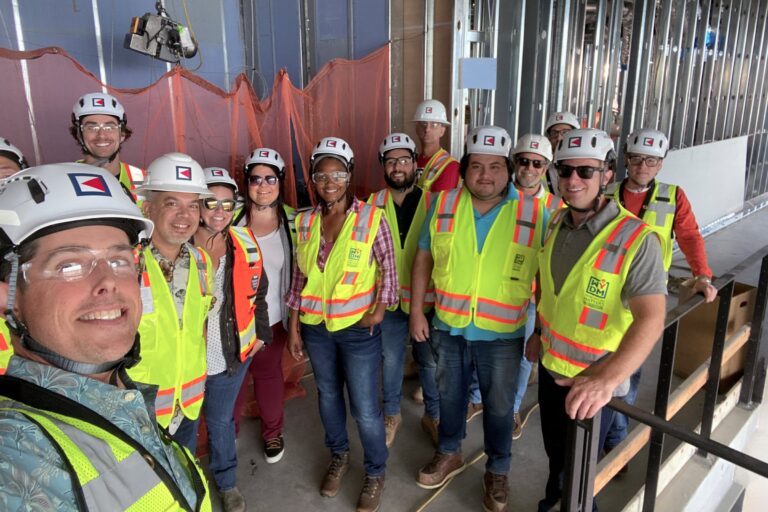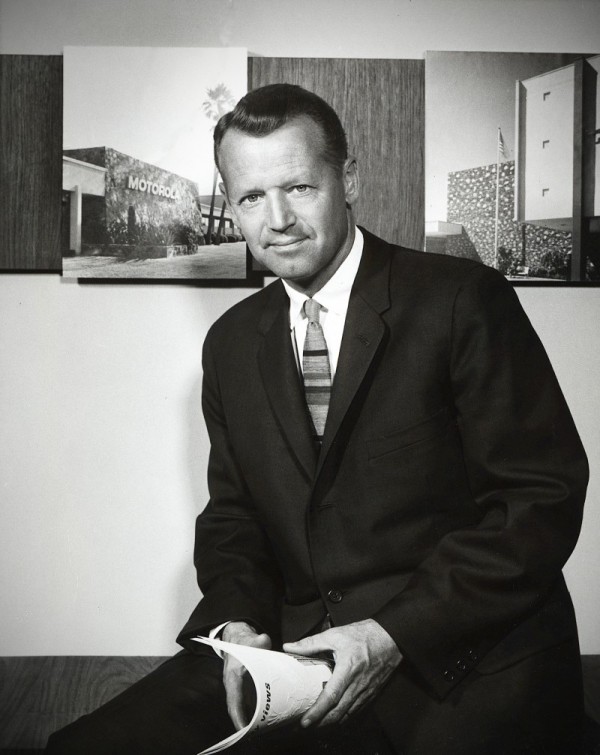Sam Kitchell attended Amherst College, and served as a commander in the U.S. Navy during World War II. After the war ended and he found himself out of a job when the pre-fab housing company he worked for went bankrupt, Kitchell decided that he needed a more stable position in the construction industry and relocated his growing family to Phoenix, Arizona. He worked for a local architecture firm as a supervisor of construction projects, and also as an estimator for a building contractor before meeting Phoenix businessman James B. Phillips. Phillips had recently sold a business and was looking for a new investment. Kitchell convinced Phillips that the construction industry was a good place to invest, and the businessman provided $10,000 to begin a new company. The two partners incorporated Kitchell-Phillips Contractors, Inc. in January 1950.
For three months, no one in the company drew any salary. Kitchell worked as the firm’s estimator and his wife served as the company’s secretary. By the end of year, however, Kitchell-Phillips was contracted to build a number of Safeway retail stores and a few schools near Phoenix, resulting in sales of $800,000. The two men were also aided by the onset of the Korean War. Kitchell-Phillips Contractors secured projects for the American military at Luke Air Force Base and the Yuma Army Test Station. The most important of these wartime contracts was the rehabilitation and improvement of the Tank Training Command. Located at Camp Irwin in the Mojave Desert in California, the size of the contract doubled to nearly $2 million by the end of 1952.
What followed these early years was the eventual buy-out of Phillips, innovations in construction management and development, expanded offices and an enviable profit-sharing model that rewards ownership to those Sam held in high regard as Kitchell’s most important asset: its people.
While Sam Kitchell passed away at the age of 83 in 2006, his legacy lives on, and he encouraged decades of growth through diversification, creativity, strong operations and management expertise and a spirit of entrepreneurship that sustains our 800-plus workforce today.

 Kitchell believes in justice and equality. It is our responsibility to hold ourselves accountable to this statement, today and always.
Kitchell believes in justice and equality. It is our responsibility to hold ourselves accountable to this statement, today and always.